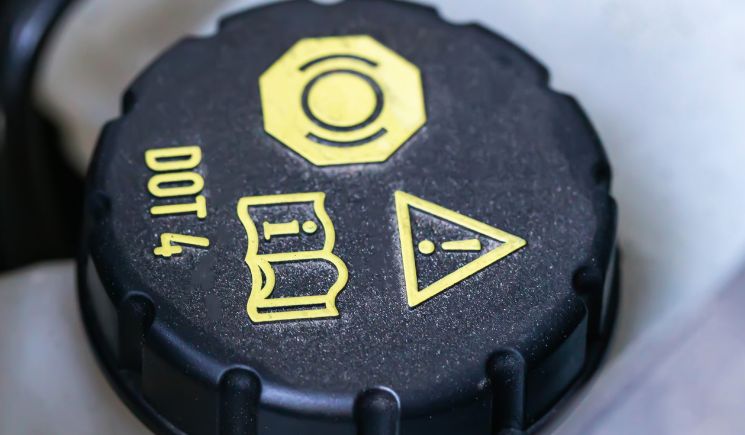It can be alarming to open your vehicle’s power steering fluid reservoir and discover it contains brake fluid.
While finding other fluids in the wrong reservoir is never normal, a small amount of brake fluid in the power steering can often be harmless.
However, it still requires prompt diagnosis and repairs to prevent more significant issues.
Potential Causes
- The most likely cause of brake fluid crossing over into the power steering system is a failure of the power steering pressure hose.
- This hose carries fluid from the power steering pump to the steering gear.
- If it develops cracks or holes from wear, the power steering fluid can then leak out.
- Because the power steering and brake master cylinders are both in the engine bay, leaking power steering fluid can drip down into the master cylinder reservoir.
- The next time when the reservoir cap is free, evidence of this mixing of fluids are apparent.
- If the leak is occurring very slowly, only a small amount of contaminating brake fluid may enter the system.
- However, over time, more significant mixing can happen and negatively impact the power steering performances and components.
Dangers of Fluid Mixing
- While the two hydraulic fluids can operate safely in their independent systems, it is best to avoid mixing brake and power steering fluid.
- This is because the differing chemical properties can cause the fluids to foam, break down prematurely, or change viscosity.
- Power steering systems are working for high pressures.
- Contaminated fluid could lead to pump cavitation, noisy operation, and eventual failure.
- The compromised fluid can also accelerate wear and leakage in the steering rack, pump, and hoses.
- Likewise, small amounts of power steering fluid mixed into the brake system will lower the brake fluid’s boiling point.
- This reduces braking effectiveness under high temperatures and increases vapour lock potential.
- Moisture intrusion into either system from leaks can also cause corrosion issues.
Recommended Actions
- Finding any evidence of fluid crossover between the brake master cylinder and power steering reservoir requires prompt diagnosis.
- The immediate area around both components should be thoroughly cleaned to pinpoint the source of leaks.
- The brake fluid level and condition should also be inspected.
- In most cases, the power steering pressure hose will need replacements to separate the two fluid systems permanently.
- Any other worn steering or brake components that are contributing to leaks should also be addressed.
- As the final try, a complete fluid flush will remove any contaminated fluid and restore the purity of each system.
Being Proactive
Noticing fluid mixing early and completing repairs quickly is the best way to avoid big problems down the road:
- Schedule regular inspections of all fluid levels and hoses as part of routine maintenance. This is because early leak detection is key.
- Consider replacing the ageing hydraulic hoses proactively if those are over 5-7 years old. Because their high-pressure operations causes wear over time.
- Investigate any new steering noises, vibrations, or brake pedal changes, as they could indicate leaks.
- When inspecting under the hood, take time to glance at all reservoirs. Cross-contamination may only be apparent once you pop the lid.
- If contamination does occur, only top up fluids by addressing the root cause. This is because tracing and fixing the leaks are critical.
FAQs About Small Amount of Brake Fluid in Power Steering Reservoir
Q: Is it safe to drive when there are some brake fluid is in the power steering?
A: It’s generally not recommended to drive with any amount of brake fluid mixed into the power steering system. Because the differing fluids can compromise performances. Therefore, get the cause diagnosed and repaired as soon as possible.
Q: How much does it cost to fix the mixed brake and power steering fluid issue?
A: Between new hoses, gaskets, flushes and labour, you can expect a repair bill of $400-$800 in most cases when diagnosed early.

